The most beautiful views in Seville
The Andalusian capital is a visual feast.
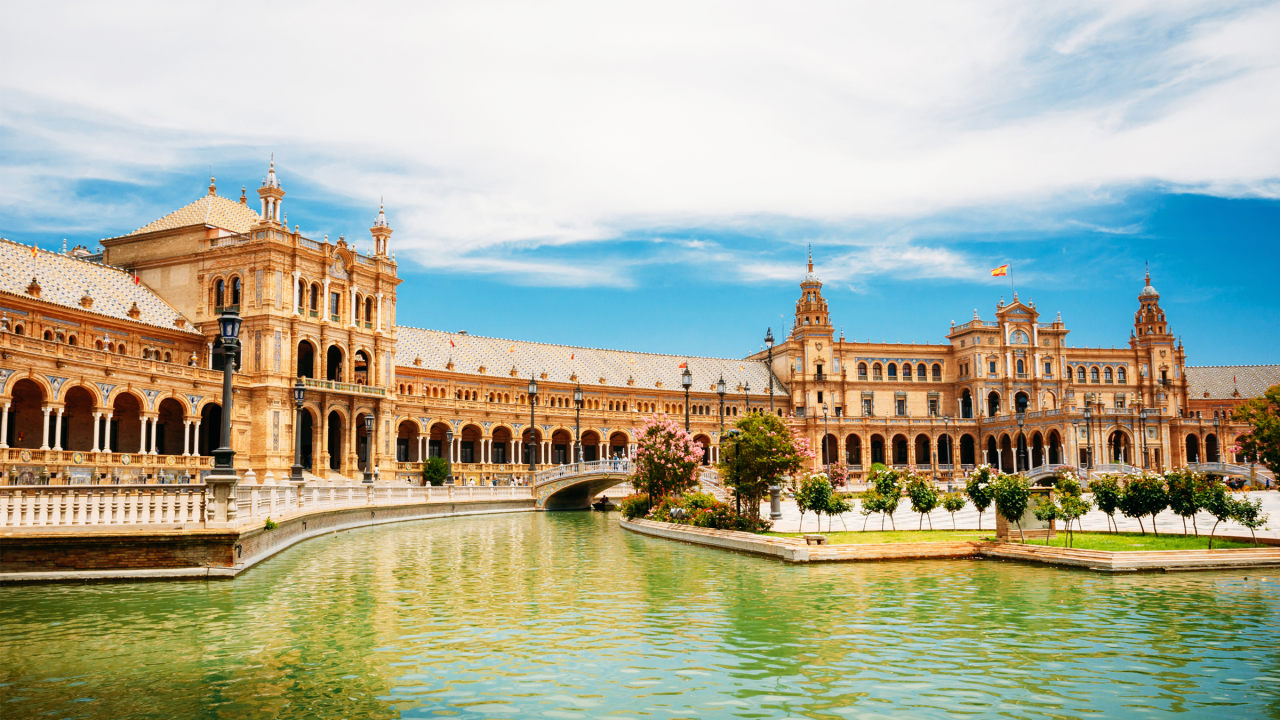
Real Alcázar
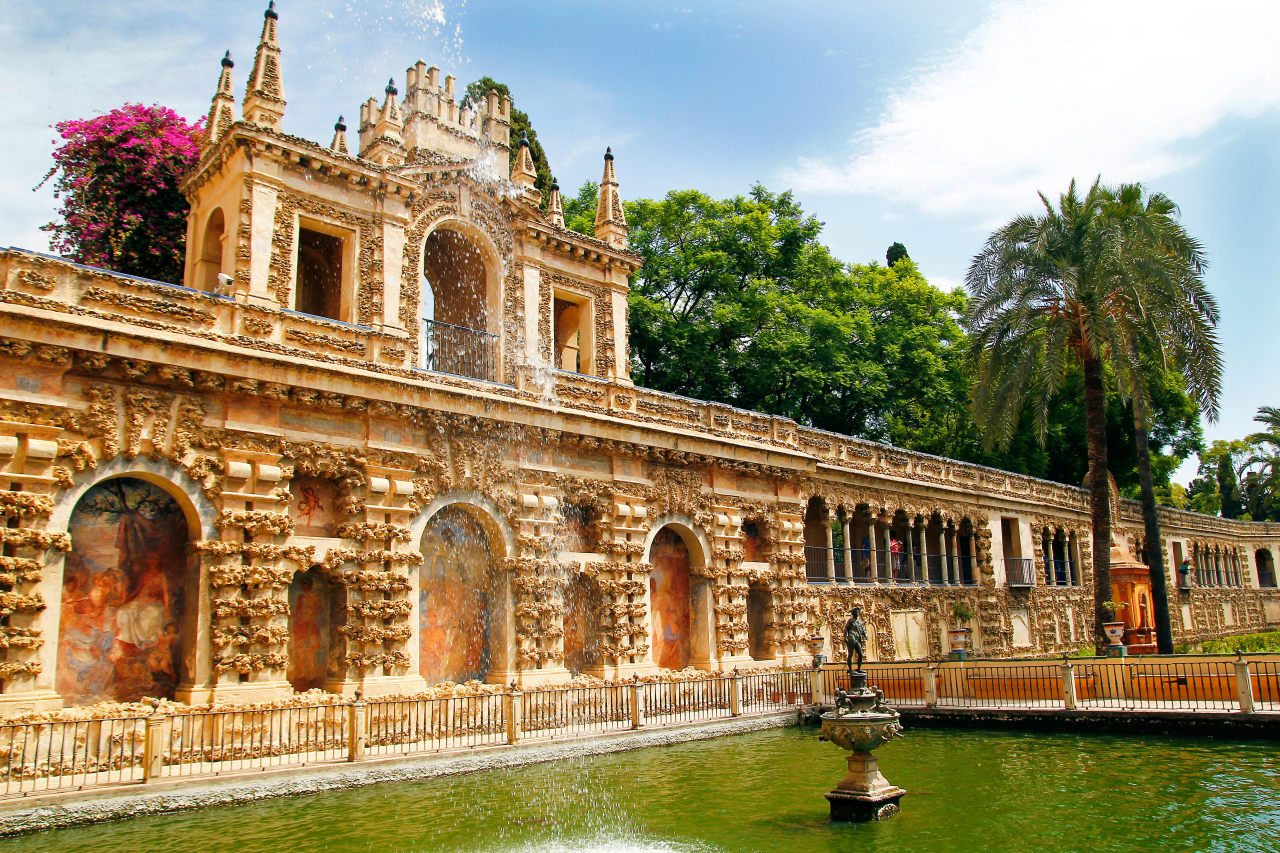
Few views are as splendid as Seville’s Real Alcázar, a lavish royal palace richly decorated with stucco and tiles by local artisans. The complex is a rewarding combination of exquisite Mudéjar craftsmanship, regal grandeur and beautifully landscaped gardens, which should first be taken in from afar, then wondered at up-close.
Puente Isabel II
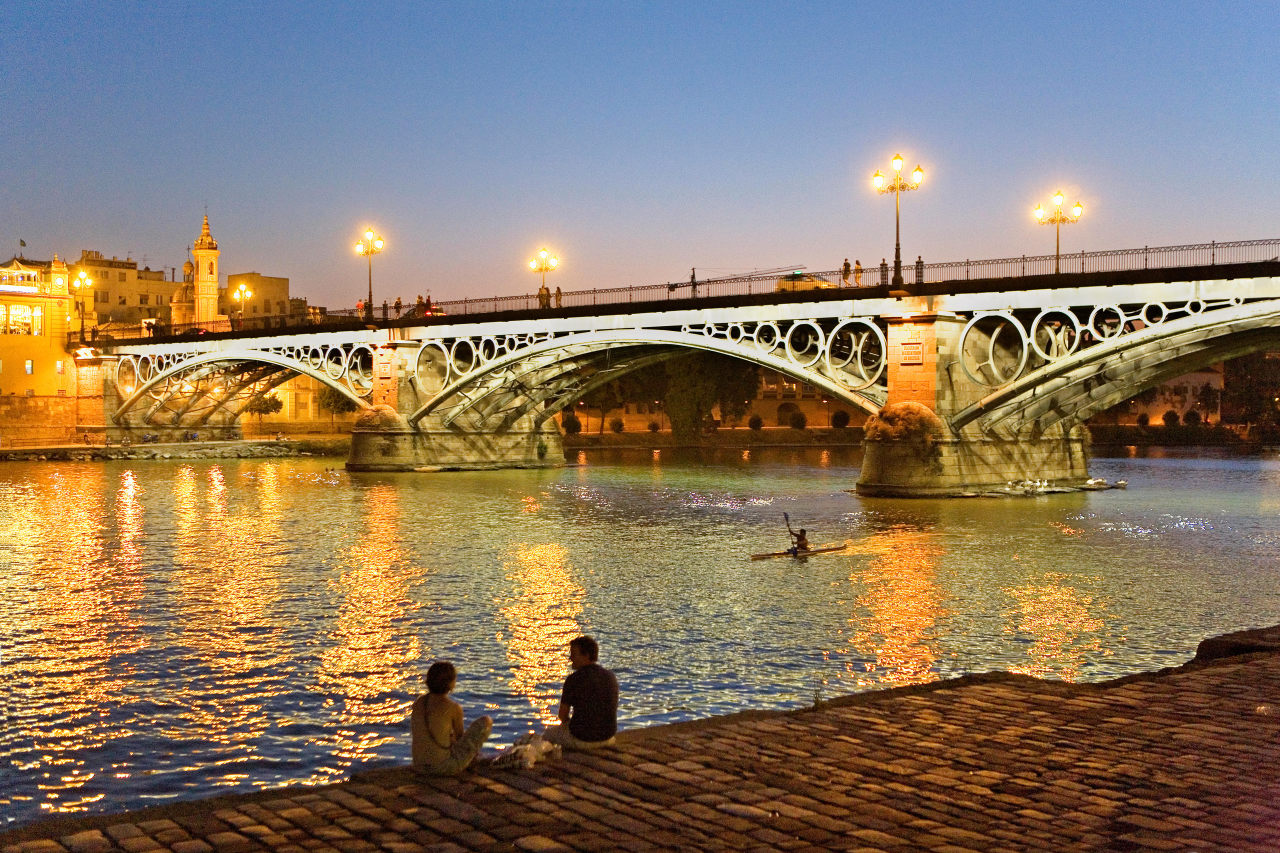
The Puente Isabel II is a fine showcase of 19th-century arquitectura de hierro (iron architecture) – a nod to Andalusia’s “industrial” age. Built in 1852, on the foundations of a long-lost 12th-century Arab bridge, it connects the barrio of Triana with the centre of Seville. The structure is at its best when the sun sets.
Palacio de San Telmo
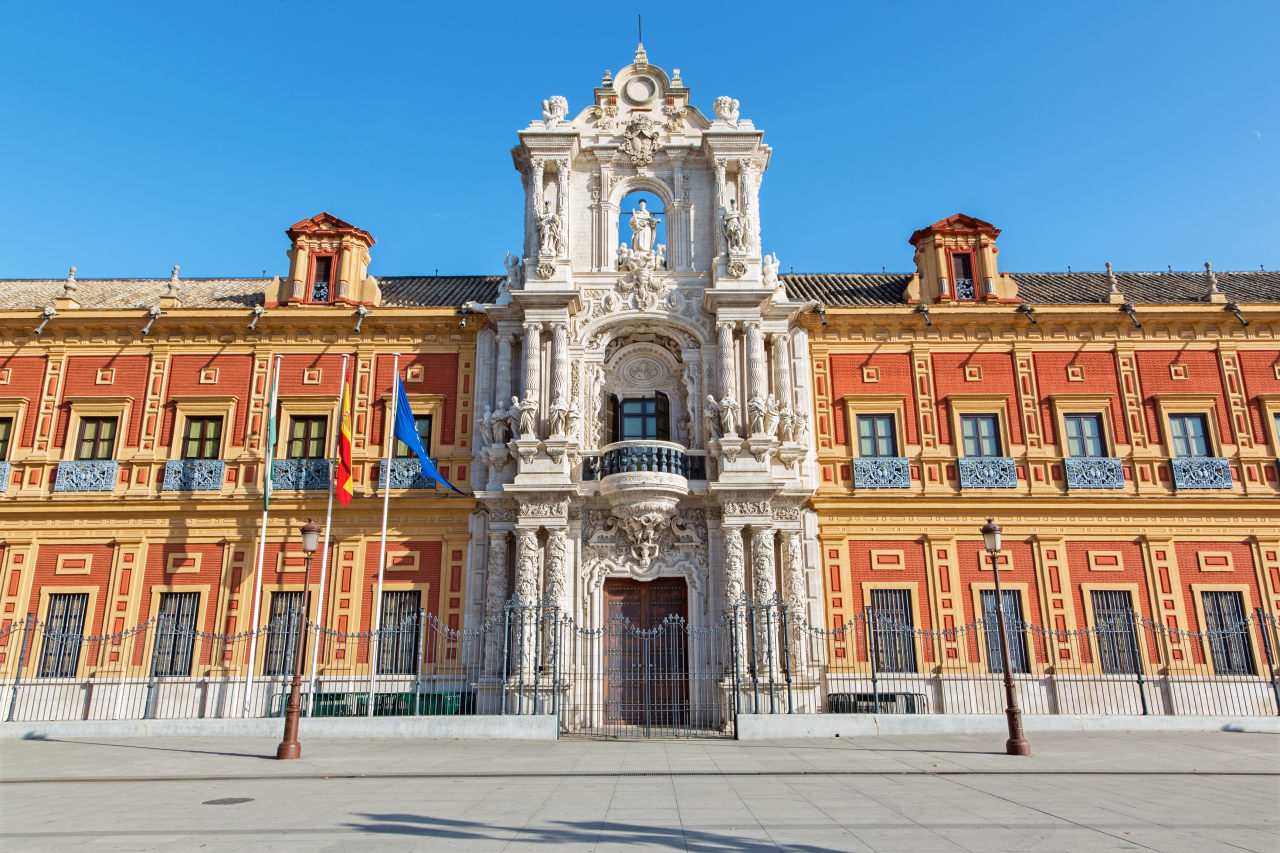
Spend some time admiring the façade of Palacio de San Telmo; it is one of the most intricate architectural feats in Seville, most notably for its Churrigueresque doorway. This imposing palace now houses the Junta de Andalucía (Council of Andalusia).
Parque María Luisa
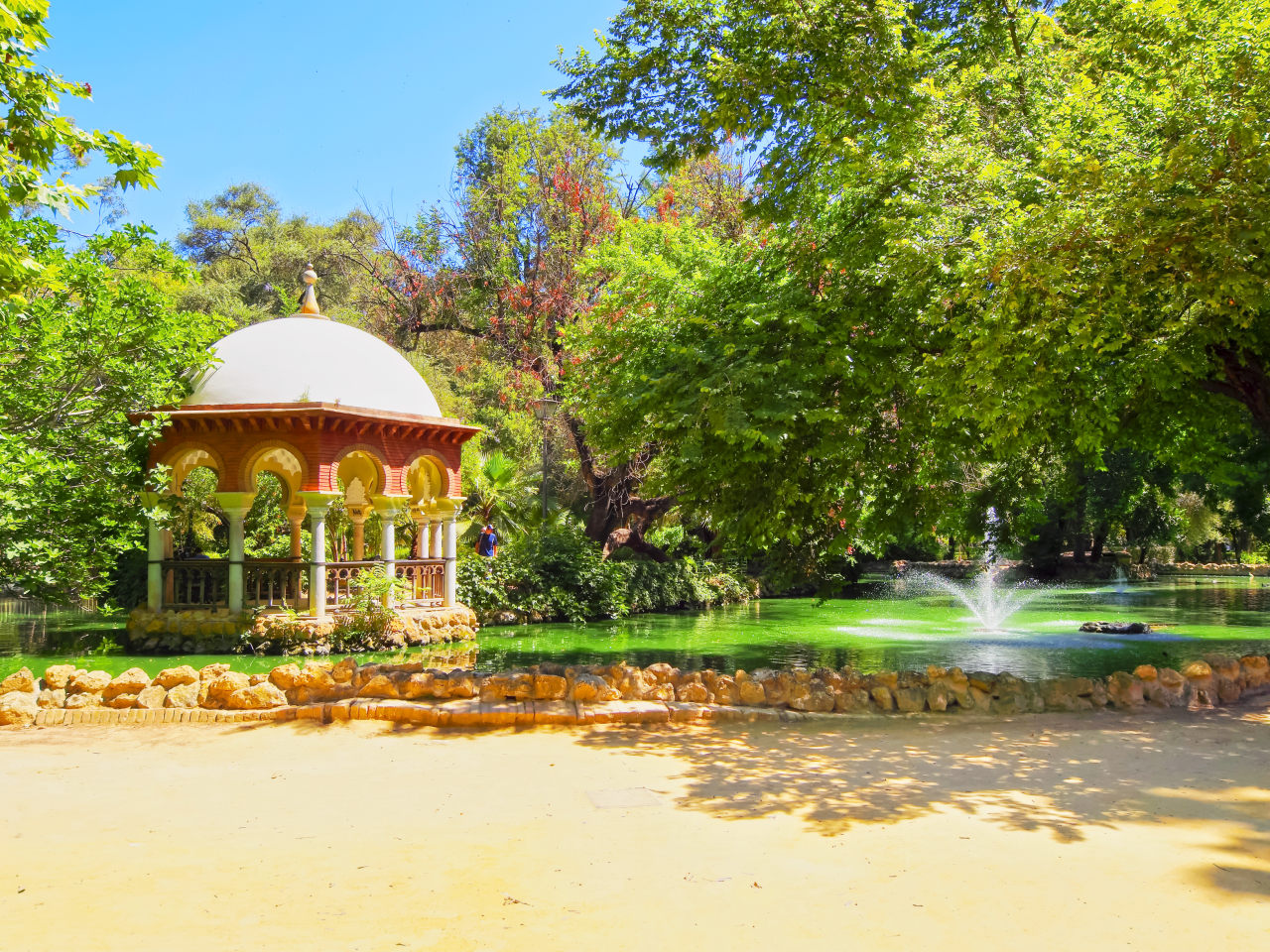
This grand, leafy expanse dominates its eponymous borough, and is Seville’s principle green space. A great part of it originally formed the grounds of the Baroque Palacio de San Telmo, dating from 1682. Today the park is devoted to recreation; with its beautiful fountains, flower gardens and trees, it provides a welcome place to relax during the long, hot summer months.
Triana
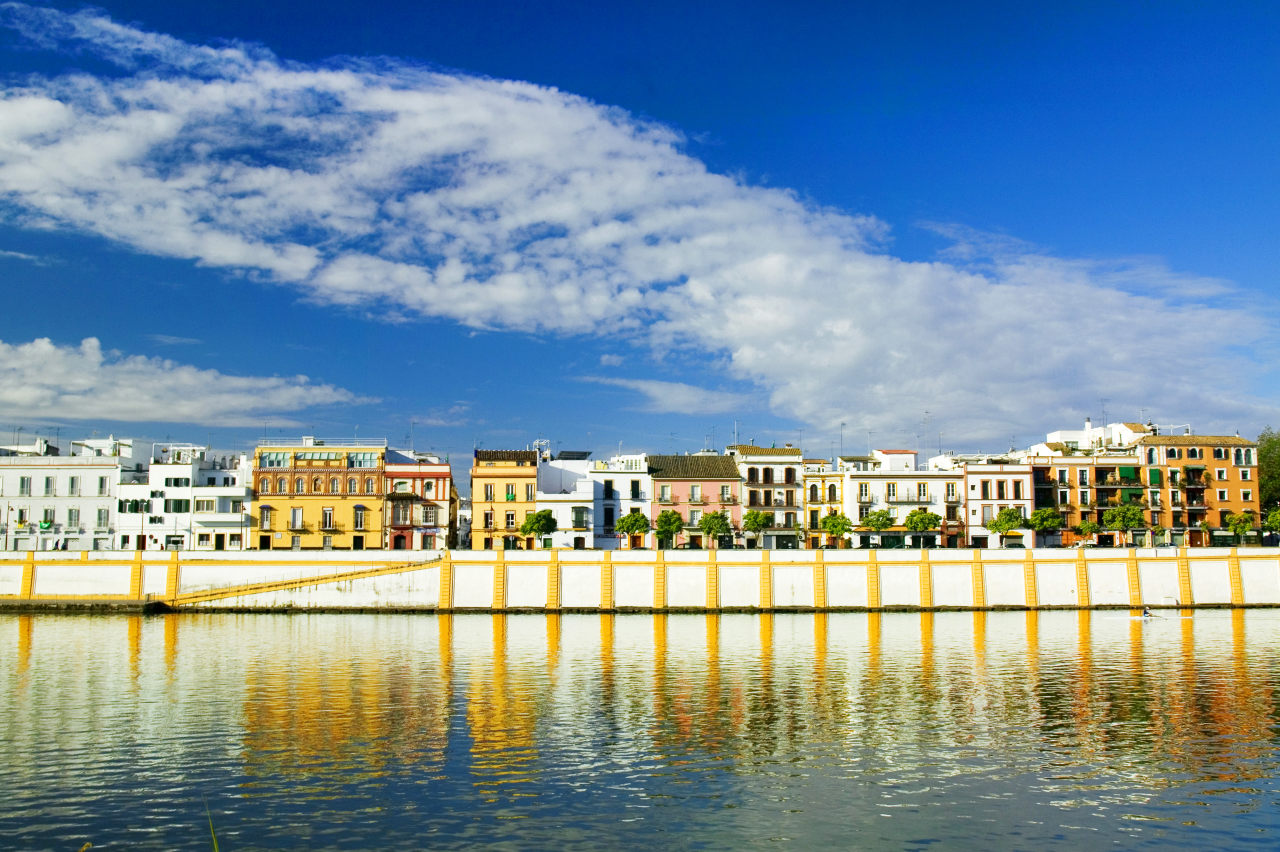
The view of Triana’s motley houses is fantastic from across the Guadalquivir. But it’s certainly worth making time to explore this traditional district. Since Roman times, wonderful pottery has been made here, and it is also famous for the bullfighters and flamenco artists that came from its predominantly Roma community. Wander Triana’s cobbled streets and narrow alleys, and soak up its authentic, lived-in feel.
Barrio de Santa Cruz
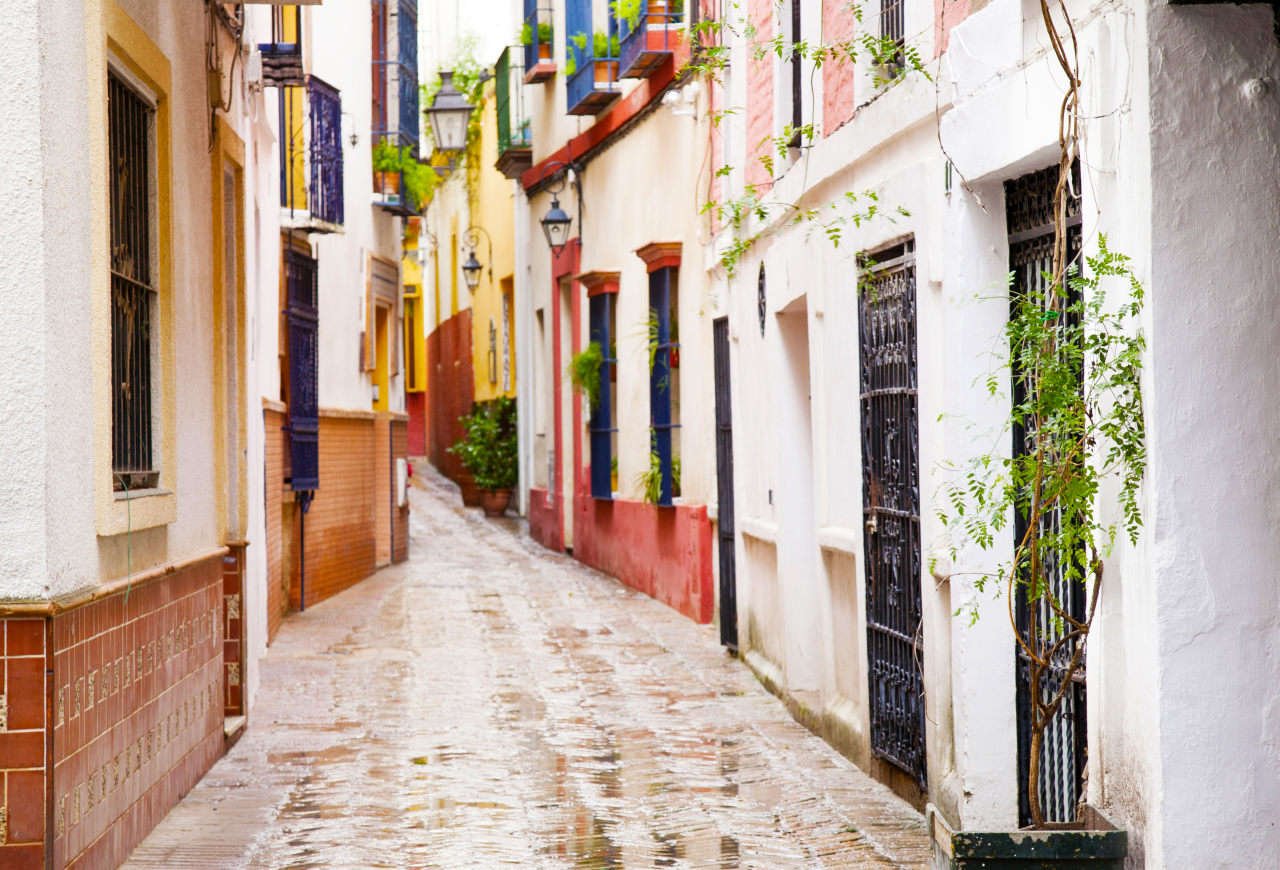
The maze of narrow streets to the east of Seville Cathedral and the Real Alcázar represents the city at its most romantic and compact. As well as the expected souvenir shops, tapas bars and strolling guitarists, there are plenty of picturesque alleys, hidden plazas and flower-decked patios to reward the casual wanderer.
Metropol Parasol
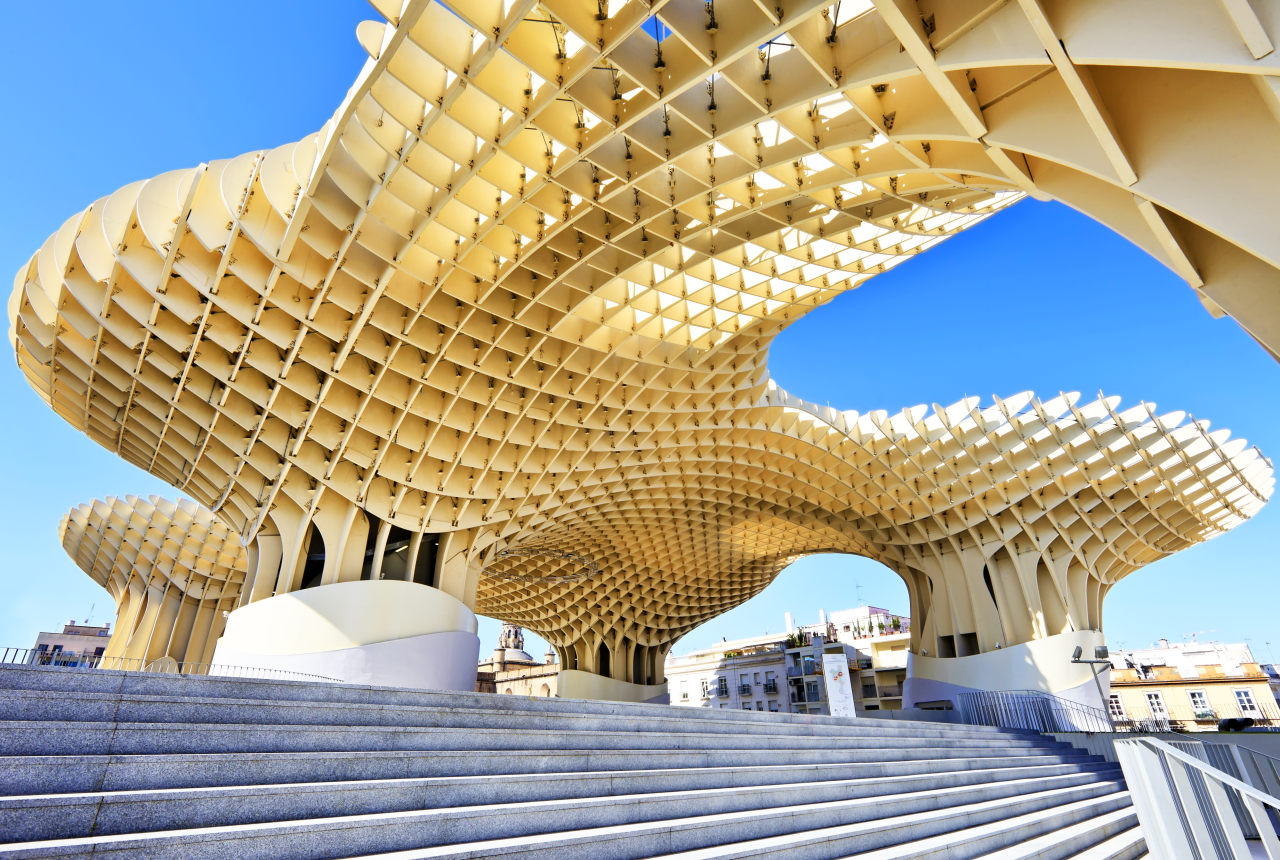
This innovative wooden structure – one of the largest of its kind ever built – is also affectionately know as “Las Setas” (The Mushrooms). Take in this fascinating architectural feat from the ground, before climbing to the structure’s Observation Deck for stunning city panoramas. Be sure to explore the interesting Antiquarium museum – a basement exhibition showcasing archaeological wonders found during the project’s completion.
Plaza de Toros de la Maestranza and La Giralda
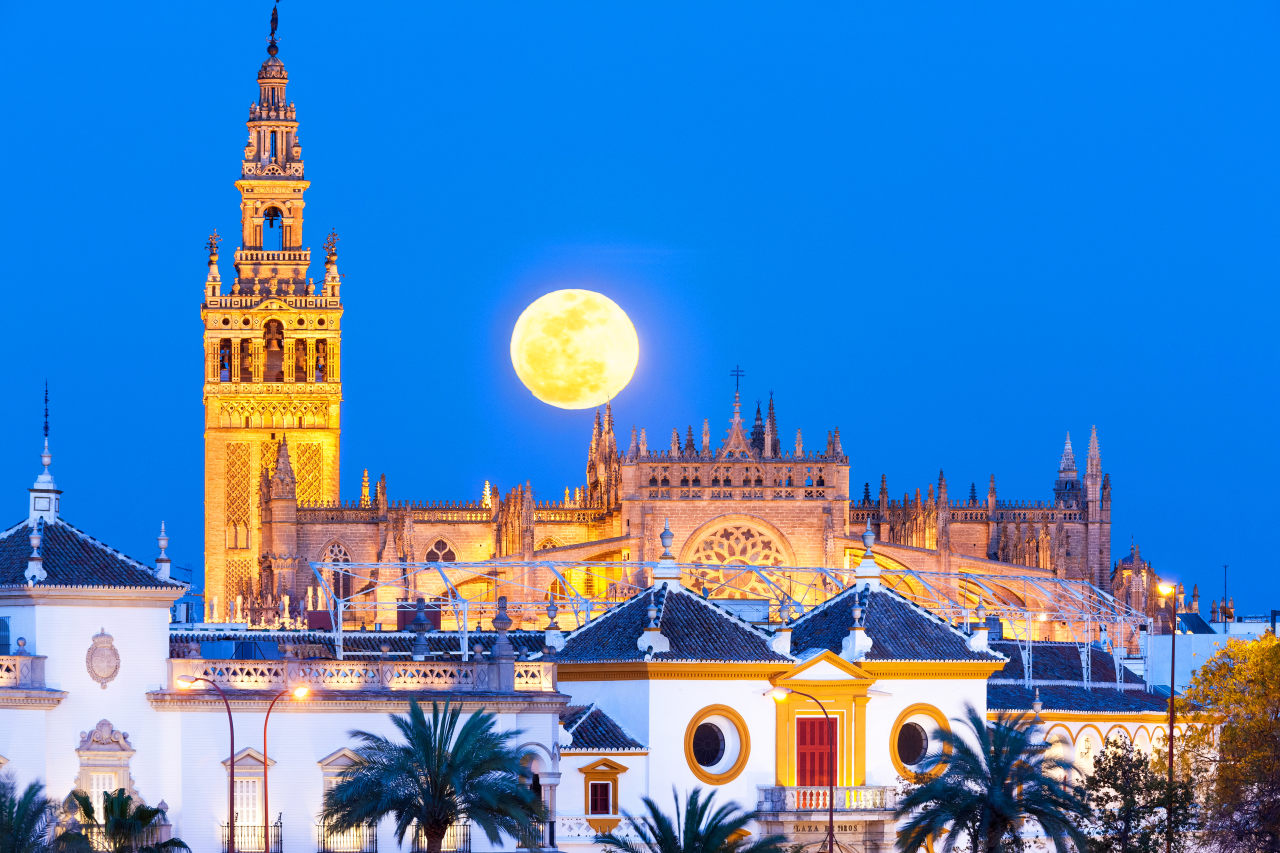
The riverside restaurants and bars along Calle Betis afford stunning views of the towers and belfries on the banks directly opposite. The Plaza de Toros de la Maestranza, Seville’s 18th-century bullring, with the grand La Giralda rising behind it, is one of the most striking. A full moon suspended over the cathedral adds to the drama.
Plaza de España (in Parque María Luisa)
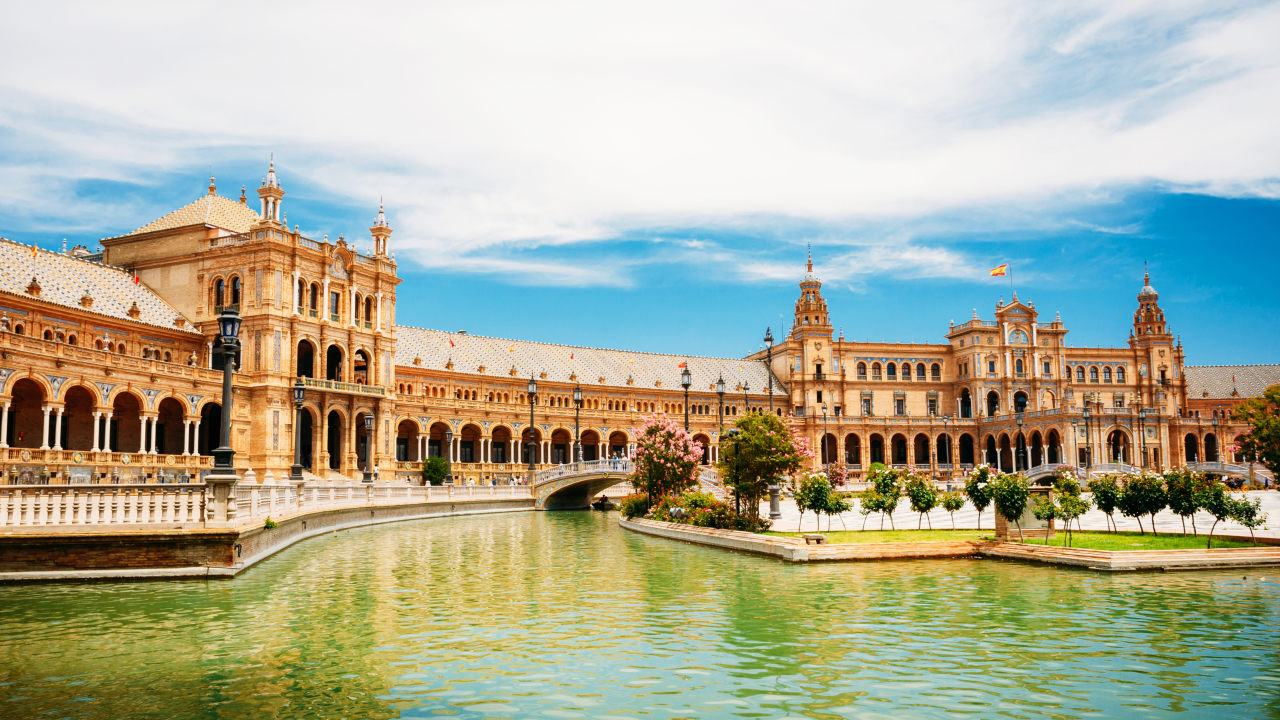
The grand, crescent-shaped Plaza de España was a centrepiece of the Ibero-American Exposition of 1929 – an international jamboree that sought to reinstate Spain and Andalusia on the world map. Exhibitions from Spain, Portugal and Latin America were displayed in attractive, purpose-built pavilions; Plaza de España, with its grand towers and calm lake, is one of the most striking legacies from this surge of Andalusian pride.
Seville cityscape seen from La Giralda
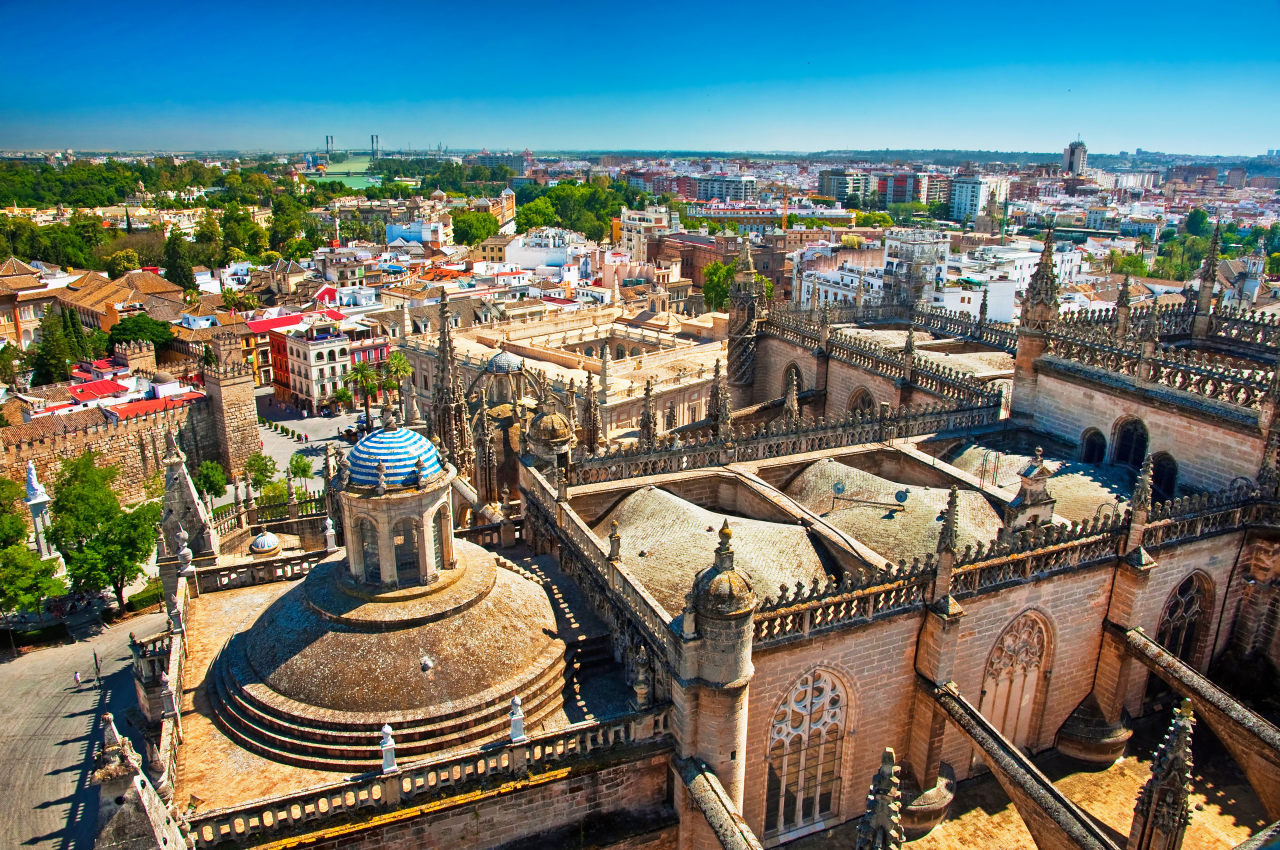
Torre del Oro
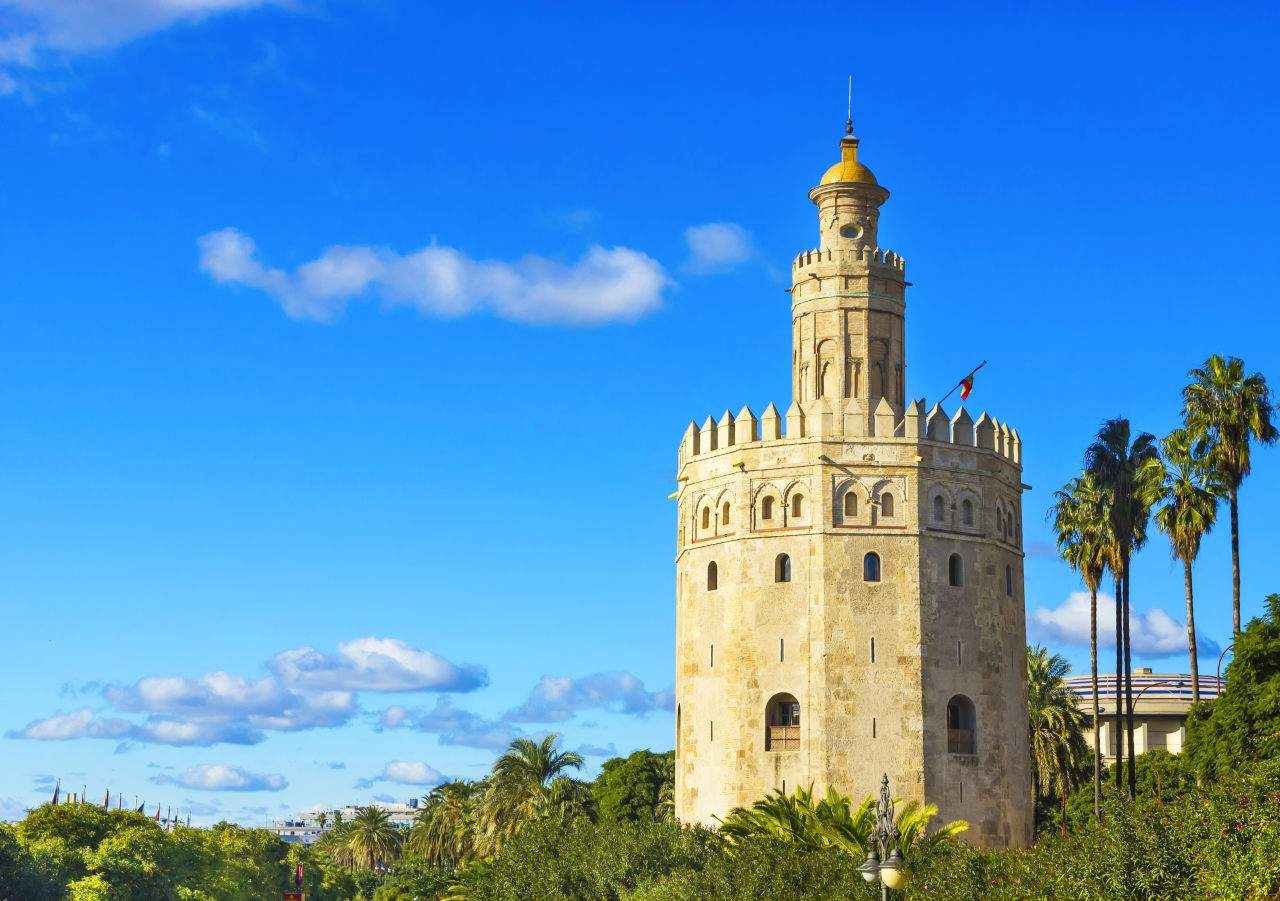
Built in the 13th century, this crenellated Moorish tower – whose name translates as the Tower of Gold – was once a key part of the city’s walled defences. Its enviable spot on the riverbank means it is easily admired from across the water, but don’t miss the opportunity to explore the small maritime museum now contained inside.
Seville Cathedral and La Giralda
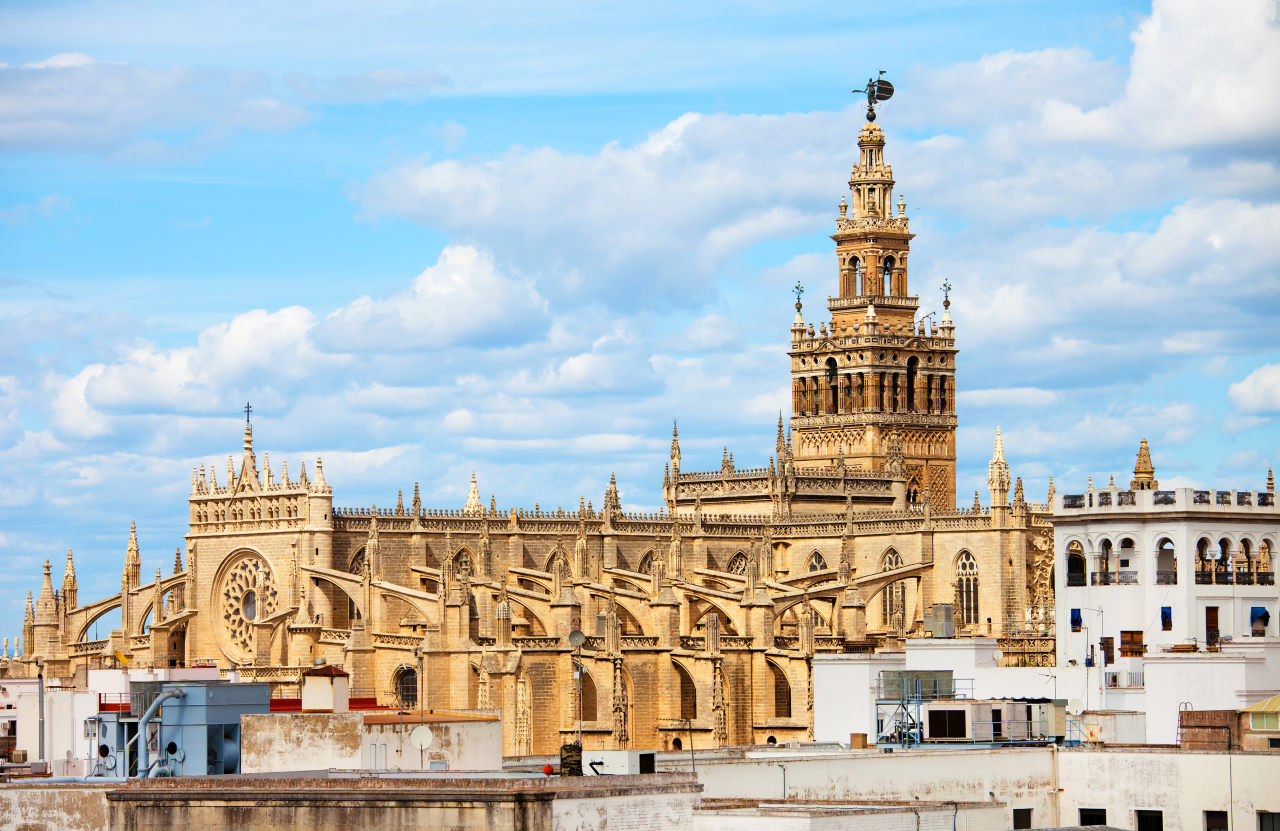
This huge Gothic cathedral, with its Moorish bell tower, is Seville’s most popular landmark. Built on the site of a great Mosque, it is one of the world’s largest cathedrals. Stunning to behold from the outside, it’s also worth venturing within: a large, gilded altar and numerous splendid artworks are housed inside.
Seville cityscape seen from Metropol Parasol by night
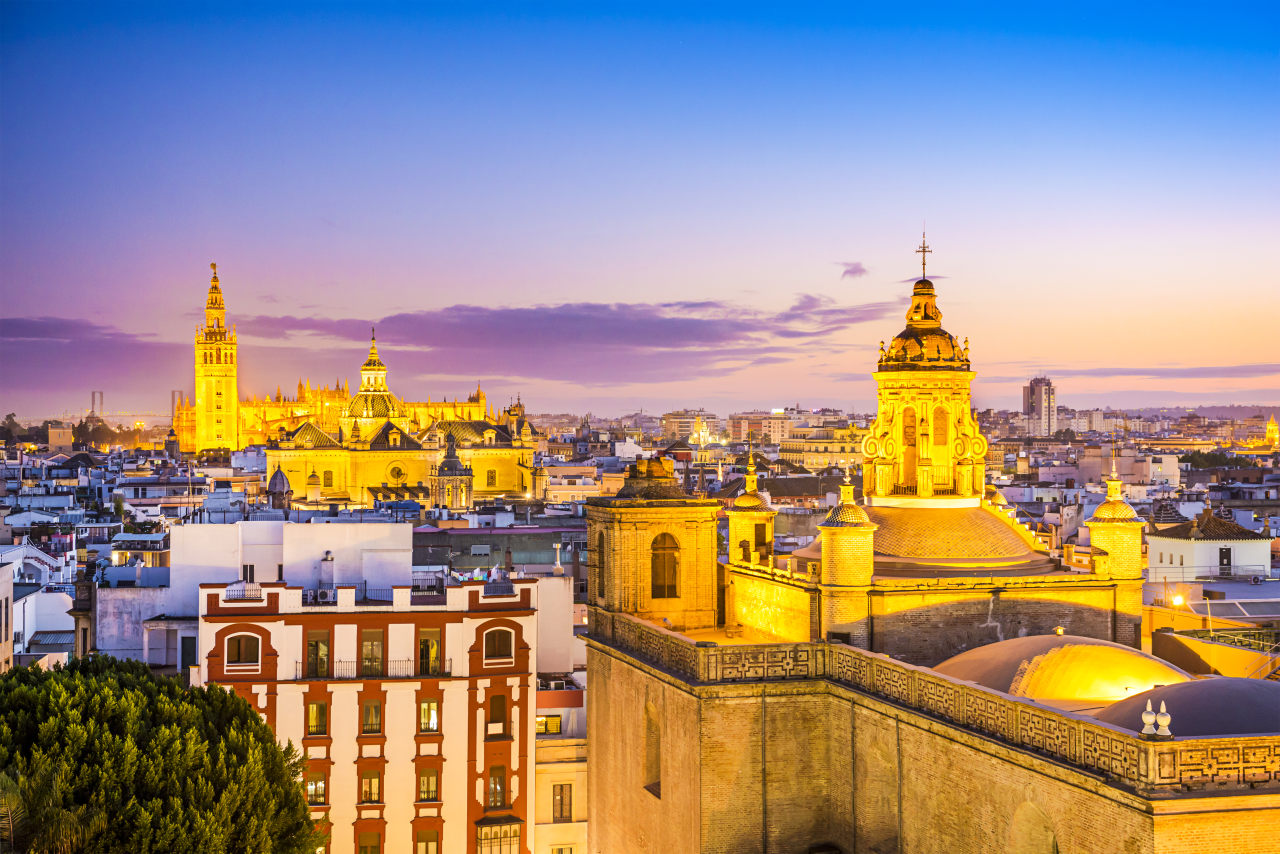
Though the undulating mass of the Metropol Parasol is a sight in itself, it’s worth looking out from the Observation Deck too. The view encompasses the revered Seville Cathedral and La Giralda, and a handful of gastro-bars await at the top too.
